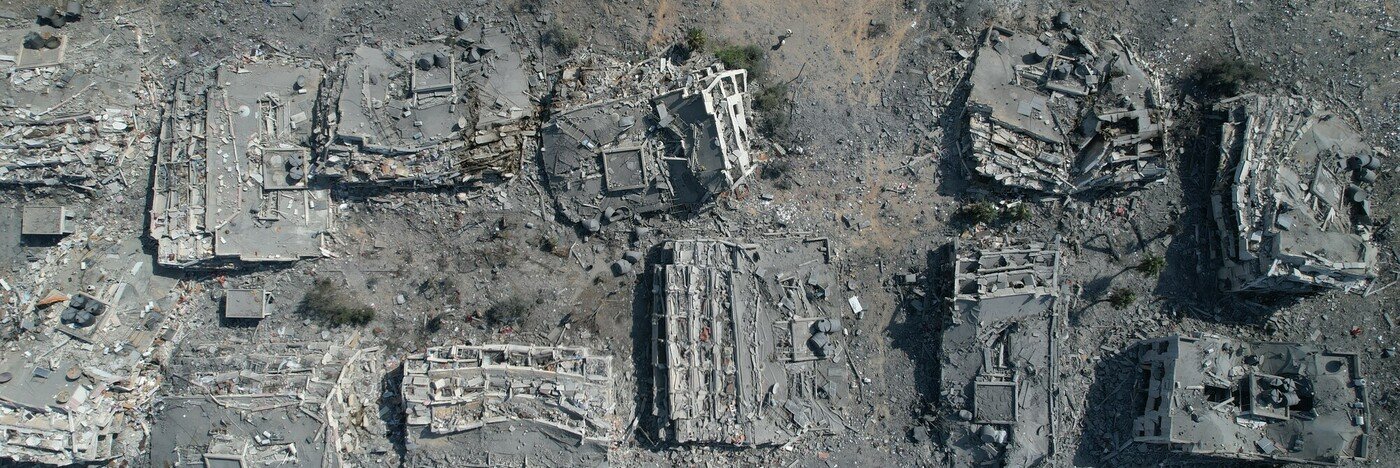
The Israeli airstrikes destroyed Al Zahra City. Residential towers in the Gaza Strip were turned into rubble during an Israeli airstrike, with at least twenty-five residential towers being targeted. Photo: Alef Multimedia Company/ Oxfam
Talking about Israel and Palestine in school?
Here are eight ways to help young people learn, think and act.